Share
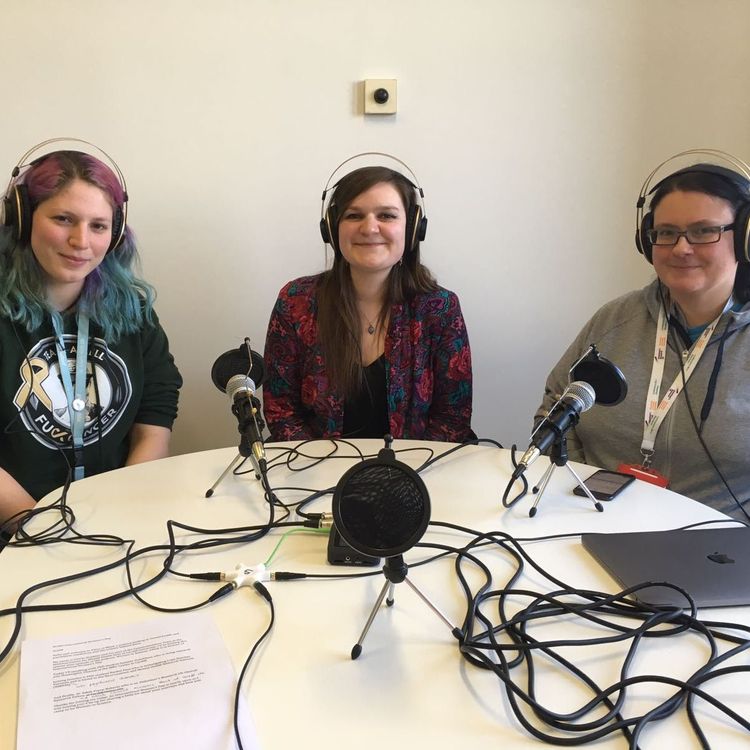
Piece of Mind: Mental Health and Psychiatry
Minisode: Women In Science
•
It's International Women's Day, and to mark the event we are celebrating women in science. In this minisode, our guest host Catrin Hopkins, is joined by three scientists - Dr Adele Pryce-Roberts, Jasmine Donaldson and Rachel Pass.
Adele is an Alzheimer's UK Clinical Research Fellow at the MRC Centre for Neuropsychiatric Genetics and Genomics, where Jasmine is doing her PhD in the area of Huntington's disease.
Rachel is also a PhD student, based at Cardiff University's Neuroscience and Mental Health Research Institute, where she is investigating copy number variants and schizophrenia.
We hope you enjoy, and if you have any feedback please get in touch at info@ncmh.info
More episodes
View all episodes
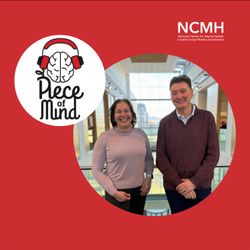
Episode 19: Reducing the risk of suicide for people with bipolar disorder
01:18:36|Content warning: in this episode we’ll be discussing suicide. If this could be at all upsetting, please stop here and maybe give another episode a try. We’ve included links to resources and information below, if you’re looking for support at the moment.In this episode, we meet with Professor Tania Gergel and Professor Ian Jones to discuss the increased risk of suicide for people living with bipolar disorder, and what research is needed in this area.A difficult but important topic, suicidal thinking is a recognised symptom of bipolar. Globally, approximately 15-20% of people with bipolar disorder die by suicide, with another 30-60% making at least one attempt. Attempts amongst those with bipolar experiencing suicidal episodes are also more lethal than attempts among the general population.Tania is the director of research at Bipolar UK, and has various other roles, including being an Honorary Visiting Professor in the Division of Psychological Medicine and Clinical Neurosciences at Cardiff University and national lead for bipolar in NCMH. A key focus of her research has been on severe mental health conditions and advance choice documents, which are also known as living wills, a legal document that explains your wishes for medical care if you can’t make decisions for yourself.You can find another Piece of Mind episode where we sat down with Tania to discuss ACDs in more detail if you’d like to hear more.Ian is a professor of perinatal psychiatry for the Division of Psychological Medicine and Clinical Neuroscience at Cardiff University, and, at the time of recording, director of NCMH (Ian has since retired and Professor Jon Bisson has now stepped into his rather large shoes). His research interests relate to bipolar spectrum disorders, in particular the relationship of mood disorders to childbirth. Ian is also a psychiatrist within the Cardiff and Vale University Health board and Ian’s clinical focus is on women at high risk of severe episodes after having a baby, also referred to as “postpartum”. He was also the director of the Bipolar Education Programme Cymru a group programme which received the British Medical Journal award for innovation in medicine in 2014.ResourcesIf you or someone you know is in crisis, please contact the Samaritans on 116 123 or text FRONTLINE to 85258. In an emergency, please call 999. You can also access crisis support through your General Practitioner (GP).Bipolar UK Research Community - join as someone living with bipolar or if you're supporting someone with bipolar: https://www.bipolaruk.org/research-partnerships NCMH Research Community - open to everyone over the age of 16: https://www.ncmh.info/help-with-research/ Bipolar Education Programme Cymru (BEPC) - free online recordings: https://www.ncmh.info/resources/covid19-resources/bepc/ Advanced Choice Documents podcast episode with Tania: https://shows.acast.com/piece-of-mind/episodes/minisode-have-your-voice-heard-in-mental-healthcare-decision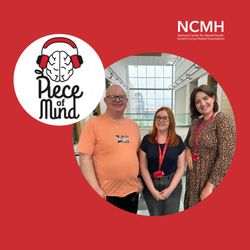
Episode 18: How mental illness impacts our memory and concentration
35:44|On this episode, we’re chatting about how researchers at the NCMH have been investigating how memory, concentration, and problem-solving skills, also known as cognition, are impacted by mental illness, and how online tools can be used to treat more people. Dr Amy Lynham is a researcher at the NCMH and has developed the Cardiff Online Cognitive Assessment, or CONCA, an online tool to assess cognitive difficulties that are often associated with mental health diagnoses such as psychosis and depression. Amy is joined by Anthony Cope, member of NCMH’s Partnership in Research group, also known as PÂR, and a public contributor to research happening at Cardiff University and beyond. Tony shares his experience of mental ill-health and how he's been involved in developing CONCA. Visit the CONCA websiteRead more about CONCA on the NCMH blog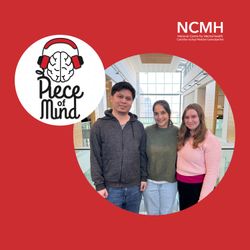
Episode 17: What it's really like to experience psychosis
58:45|Psychosis can be a difficult thing to explain. It is a term used when people experience a ‘loss of touch’ with reality. Around 3% of people will have a psychotic episode during their lifetime. Leading the discussion for us today is Maleeha, a member of the peer support group at Headroom Cardiff, who support young people in Wales that have experienced psychosis. Joining Maleeha are Bekah and Hezron, both of whom have experienced an episode of psychosis and became friends through the peer support group.Maleeha, Bekah and Hezron, kindly share their experiences of psychosis which they went through as young adults at university. They also share what they found helpful during this time and the difference the support services and peer support group made to their recovery.If you or someone you know may be experiencing psychosis, you should contact their GP practice. If there's an imminent danger of harm, call 999 and ask for an ambulance.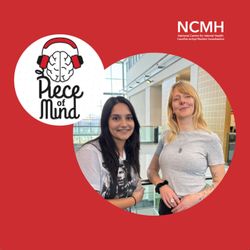
Episode 16: Supporting young people with psychosis in Wales
48:03|Psychosis is when you perceive or interpret reality in a very different way from people around you, it may also be called a 'psychotic experience' or 'psychotic episode'. Psychosis often begins in young adulthood when a person is in their late teens to mid-20s. However, people can experience a psychotic episode at younger and older ages and as a part of many disorders and illnesses. For instance, older adults with neurological disorders may be at higher risk for psychosis.This year we’ve been fortunate to work with NHS Wales to revamp Psychosis Wales, the website for information and resources for young people who are experiencing or recovering from psychosis in Wales. In this episode, we met with Maleeha Akbar and Eleanor Williams. Maleeha is based in Cardiff and experienced psychosis when she was at university. She now works for Cardiff and Vale Drug and Alcohol Service and facilitates the Headroom peer support group for young people who have experienced psychosis in Cardiff. Maleeha has kindly shared her experience of recovering from psychosis and how she got involved with the peer support group. Eleanor is the Clinical Team Leader for Headroom, the service supporting people with psychosis in the Cardiff and Vale University Health Board.Psychosis can be frightening and make it difficult to maintain quality of life, but treatment and support are available. With the right treatment, such as therapy and medication, many people recover gradually.If you or someone you know may be experiencing psychosis, you should contact their GP practice. If there's an imminent danger of harm, call 999 and ask for an ambulance.Mentioned in this episodePsychosis Wales website - find details about Headroom CardiffNCMH Research Community - sign up today!Brain and Genomics Hub research study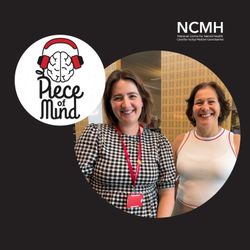
Minisode: Have your voice heard in mental healthcare decisions
37:49|Did you know that you have the option to guide mental health professionals in your treatment and care in case you become unwell? Advance Choice Documents (ACDs) give people living with mental illnesses an opportunity to state their wishes and instructions about their treatment and care during future episodes of illness. They give you a chance to make your voice heard in future mental healthcare decisions by using your knowledge, gained through past experience of illness and healthcare, to guide a clinical team through future episodes of illness. Recent research has suggested that the use of ACDs could reduce the rate of sectioning by up to 25%. We chatted to Professor Tania Gergel about her work to raise awareness of this vital tool for people with severe mental illness.Tania is the Director of Research at Bipolar UK and a Honorary Senior Research Fellow in the Division of Psychiatry at University College London and here at Cardiff University. She’s also the lead for bipolar research at NCMH. You can read more about ACDs at advancechoice.org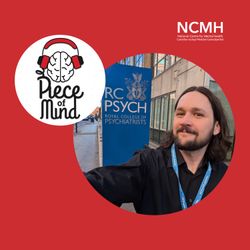
Episode 15: Not just a party drug: MDMA therapy for people with PTSD
37:49|This podcast discusses the carefully controlled clinical use of MDMA in a therapeutic research setting with specially trained professionals. MDMA remains a class A illegal drug and recreational use can carry significant legal and health risks. Please do not try this at home.Recent research has found that MDMA-assisted therapy is a safe and effective intervention for severe post-traumatic stress disorder (PSTD), but it remains a heavily restricted drug. Dr Mat Hoskins hopes that his research carried out in Cardiff and other studies across Europe will improve the quality of the research investigating this novel treatment approach.We were thrilled to sit down with Mat to understand what led him to this type of research, why does it work, and what does a session actually involve. Dr Mat Hoskins is the Lead Consultant Psychiatrist for adults at Traumatic Stress Wales. He also works as a Psychiatric Intensive Care Consultant and has experience using Trauma Focused Psychological Therapies.Traumatic Stress Wales (TSW) is funded by Welsh Government and aims to improve the health and wellbeing of people of all ages living in Wales at risk of developing or with post-traumatic stress disorder (PTSD) or complex post-traumatic stress disorder (CPTSD). Visit the Traumatic Stress Wales website.Join our research communityAt NCMH, we are fortunate to collaborate with TSW through our Traumatic Stress Research Group. If you're interested in joining our research community and hearing about the research projects that are available to get involved in, you can sign-up on our NCMH website.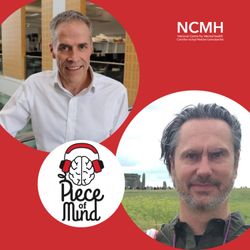
Episode 14: Recognising complex PTSD
48:36|In this episode we're joined by Professor Jon Bisson and Michael Davitt to discuss lived experience of complex post-traumatic stress disorder (PTSD) and the ongoing research looking into the diagnosis at the NCMH.PTSD is the name given to a set of symptoms that some people develop after experiencing major traumatic events. The traumatic event can be a single incident or take place over many months or years. Up to one third of people who have experienced a traumatic event develop some PTSD symptoms. Studies estimate that around 7% of people will suffer from PTSD at some point in their lives.Complex PTSD is a condition where you experience the same symptoms of PTSD, along with some additional symptoms such as feeling very angry or distrustful towards the world, as well many more.Find out about the traumatic stress research taking place at the NCMH today: https://www.ncmh.info/help-with-research/traumatic-experiences-study/To find out more about Professor Bisson's work into PTSD: https://traumaticstress.nhs.wales/For further PTSD support and guidance:NCMH - PTSD leafletMind - What is complex PTSD?Mind - Useful contactsGet involved with the NCMH traumatic stress research group: ncmh-trials@cardiff.ac.uk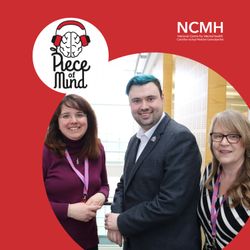
Episode 13: Learning disability, autism, and support into work
32:28|In this episode of the Piece of Mind podcast, we're joined by Andrea Meek, Dr Elisa Vigna, and Gerraint Jones-Griffiths to discuss the Engage to Change project which has supported over 1,200 young people with a learning disability or autism into employment over the last eight years.Engage to Change has worked across Wales since 2016 to support young people aged 16-25 who have a learning difficulty, learning disability, or autism to achieve their full potential. The project has worked with over 1,200 young people to offer job placements, supported internships, and job coach support over a seven year period.Engage to Change is now in its 'Influencing and Informing' phase, taking forward the research and legacy work of the project to ensure it impacts policy and practise in Wales. The project is funded by the Lottery Community Fund in partnership with Welsh Government.To learn more about the Engage to Change project, visit: https://www.engagetochange.org.uk/Links mentioned in this video:Engage to Change: https://www.engagetochange.org.uk/research-evaluation/NCMH blog: https://www.ncmh.info/2023/05/22/getting-young-people-with-autism-and-learning-disabilities-into-employment-ncmh-finds-out-what-works/Project highlights video: https://youtu.be/pjwKKGmKaGAJob coach support video: https://www.youtube.com/watch?v=LTdwF4FIFvEInterviews with family video: https://www.youtube.com/watch?v=gXmwQx8RdO8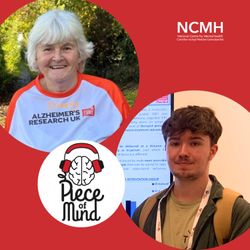
Episode 12: How dementia research hopes to change lives
36:02|Thinking about getting involved in mental health research? We caught up with Sue, an Alzheimer's Research UK Champion who has recently participated in our UK Minds research and George, a Senior Psychology Assistant working on the project.UKMinds is a new study from NCMH which aims to find the causes and triggers of mental ill-health and cognitive disorders, such as dementia. If you have experienced schizophrenia, psychosis, depression, bipolar disorder or dementia, help us make a difference by registering your interest at ncmh.info/sign-up.